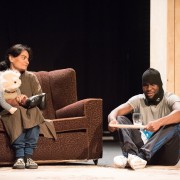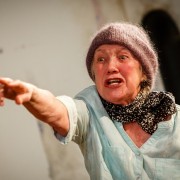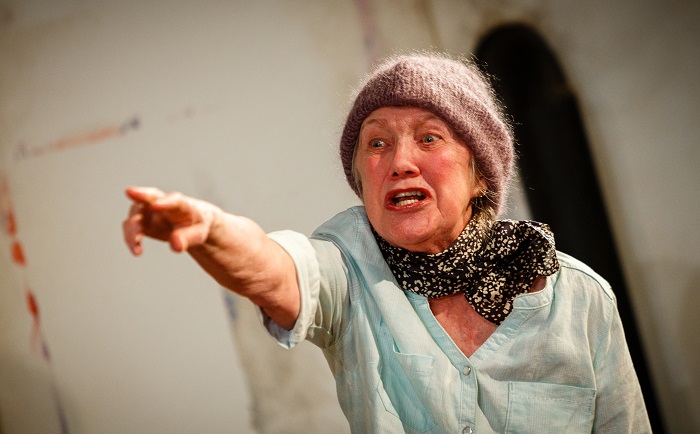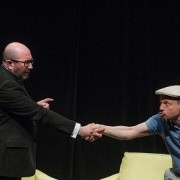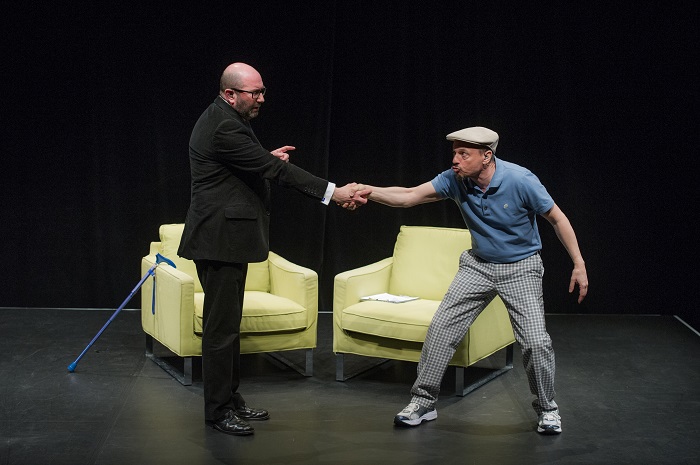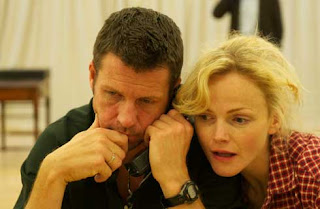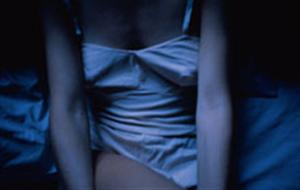Review: Come In! Sit Down!
The award-winning Muslim and Jewish theatre company, MUJU crew, have brought Come In! Sit Down! to The Tricycle Theatre in celebration of their tenth anniversary. The piece is a devised sketch show, tackling perceptions of Muslims and Jews in Britain, and the challenges faced by those communities. It doesn’t sound like that would be a barrel of laughs, but the cast take great delight in sending themselves up, holding a fun house mirror up to some difficult and controversial subjects.
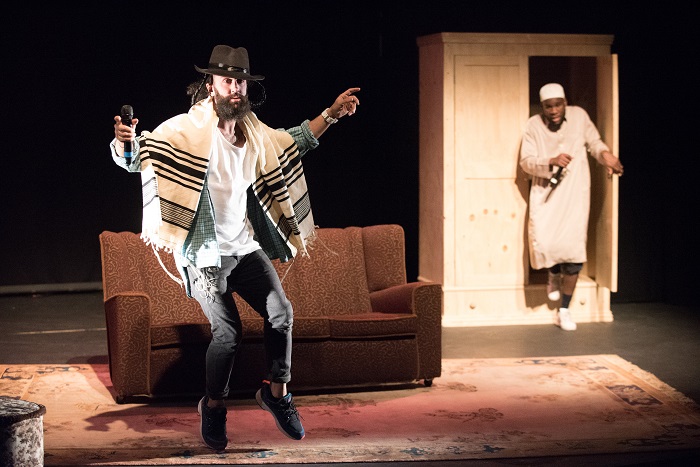
Dominic Garfield & Stevie Basuala [Photo courtesy of Rooful.com]
The musical numbers are very strong, and were the highlight for me. Although not all of the cast members have outstanding voices, they can all carry a tune, and it’s the sheer enthusiasm of the team which carries things along at a good pace.
Some sketches worked better than others, but that could be that the mixed audience missed some of the in-jokes, which would go down well with a mainly Jewish or Muslim crowd. The high points were very pertinent, but the message started to feel rather one-note as the piece went on, and at times it did feel like the audience was being rather ‘hit over the head’ with the inevitable commentary on terrorism. I would have liked to see a more nuanced approach, with the headline-grabbing material interspersed with more ‘everyday’ experiences.
My companion for the evening observed that the show has the feel of a weekly revue, with that slightly anarchic frenetic edge, and the sketches as a collection of hits and misses. While this is to be expected of a show that is being put together with very tight deadlines every week, one would expect a theatre piece, which has been developed over a longer time, to have been tightened up a bit, with some of the less-successful sketches re-worked or put out to pasture.
Overall though, the hits outweigh the misses, and at around 75 minutes, it’s a fun show with great performances, which whips along at a brisk pace. Its irreverent approach won’t be for everyone, but it’s great to see very talented people from Jewish and Muslim backgrounds coming together to challenge perceptions while making us laugh quite a bit.
Come In! Sit Down! runs at the Tricycle Theatre until Sunday 2 August. Tickets available here.


